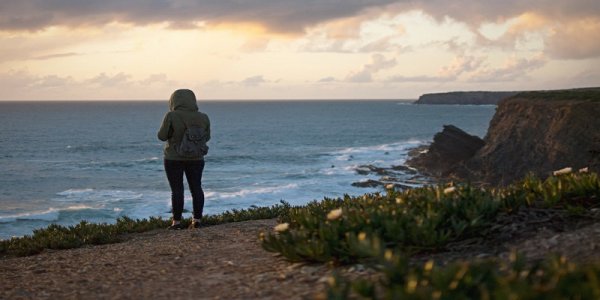Wildcamping! What’s that?
Pitch your tent where ever you like and enjoy nature! That’s the image most of us have about wildcamping. But camping is not only about a beautiful view, it is also about freedom and adventure. Isn’t this how you imagine your holiday?
Wildcamping is when you decide to spend the night outside of a campsite, a caravan site or similar facilities. You can use a tent, a caravan, a motorhome or even sleep under the stars. Bivouacking – spending the night outside – is permitted by international law, in cases of emergency. But it should not be misused! It is primarily intended for mountain regions, when surprised by bad weather, losing your way or hurting yourself.
Advantages & disadvantages of wild camping
There are a lot of advantages and some disadvantages when deciding to go wild camping.
Advantages
- You can choose the place you like
- You are not bound to rules
- You don’t hear neighbours chatting around a campfire and you seartendly won’t hear the snoring of the neighbouring tent
- Another important advantage, especially for young people: you save money
- Furthermore, you can observe the wild life around you from a closer look
Disadvantages
- You don’t have any sanitary facilities, sometimes not even water
- You have to take food with you, which means that if you are on foot, you’ ll have to carry the weight of water, food, and at least of a pot and a stove
- Finally you have to pay attention not to get caught and having to pay a fine
Wild Camping in Portugal
Wild Camping In Portugal is allowed again. According to the Highway Code in articles 48 and 50-A, it states: Overnight stays are allowed up to a maximum of 48 hours in the same municipality and are prohibited in areas of the Natura 2000 network and protected areas. Overnight stays between 21:00 and 7:00 are allowed.
Failure to comply with the law could result in a fine of 30 € up to 600 €. The autonomous islands such as Madeira or Azores follow the general Portuguese laws, especially if you are caught lighting a fire, the fines can be severe. Every year, forests burn in Portugal due to uncontrolled fires.
How to make good wild camping?
Here are some advises:
- Follow the rules – we don’t want fines on holiday!
- Respect the rest areas.
- Follow a good philosophy. Respect nature and the people around you.
- Don’t build fires where they are not allowed, and don’t leave litter.
- If you don’t have a toilet in your car, you should bury your gifts to nature well. If you have your own toilet, and empty it from time to time at the official plots, it is not expensive.
But there is one thing you must strictly avoid: Protected areas and nature parks. Not only because of the high fines, but above all because of the effects on nature. A camper alone may cause little or no damage, but once it is tolerated, more and more campers are quickly going to arrive.

Zambujeira do Mar, Portugal
Alternatives
In Portugal, other alternatives to lire camping are campsites and caravan pitches. Caravan pitches are not very different, as they all have water, electricity and toilets.
Campsites though have some differences. On the one hand there are the ones offering large and comfortable pitches. On the other hand there are also a lot of small and natural campsites, which offer only what is absolutely necessary and are therefore much cheaper.
There are also free of charge parking places for motorhomes, where everybody can get fresh water and can empty their toilet and their garbage. These are places that are maintained on the initiative of local communities, such as Praia de Lavos.
Special features of individual regions
Algarve in the south of Portugal is particularly popular for tourists and is therefore not suitable for wild camping. Same goes for areas around of the capital, Lisbon. On the other hand, the north and some of the Portuguese islands have wide uninhabited areas. In the mountains and wine regions of northern Portugal you will find beautiful nature and lovely beaches at the sea.
Even at popular surfing spots police turns a blind eye during low season, while supermarkets and day bars have nothing against new customers. This is the case in Peniche, an oval peninsula about 100 km north of Lisbon. There, at the edge of the village, is a fortified parking place. Next to it a supermarket has installed water points and a washing machine with a dryer. Those who shop from the supermarket can also wash their clothes and take water.
The archipelago of Azores offers a beautiful nature with volcanic mountains, craters, huge crater lakes, grasslands, forest and bush landscapes that are hardly inhabited or not at all. But here you won’t get far with a caravan or camper van and the arrival and departure can’t be done by plane. The landscape is however ideal for hikes or bicycle tours. The climate is mild all year long, albeit very humid.
Madeira and the smaller neighbouring island Porto Santo are beautiful islands, which are also excellent for hiking for several days. On the Levadas, former water channels, which were still laid out by the Moors, you can reach many areas exclusively on foot. Since this happens away from tourist areas, you ll hardly have to worry about being caught for wild camping.
To sum up
Campervan hire in Portugal: Discover the diverse options for parking and overnight stays. Ensure you have comprehensive knowledge about your desired locations and adhere to their guidelines. Moreover, it is essential to prioritize respect for both the environment and local communities. By doing so, you can relish the exceptional natural landscapes, encounter remarkable individuals, and embrace the freedom of free camping.
